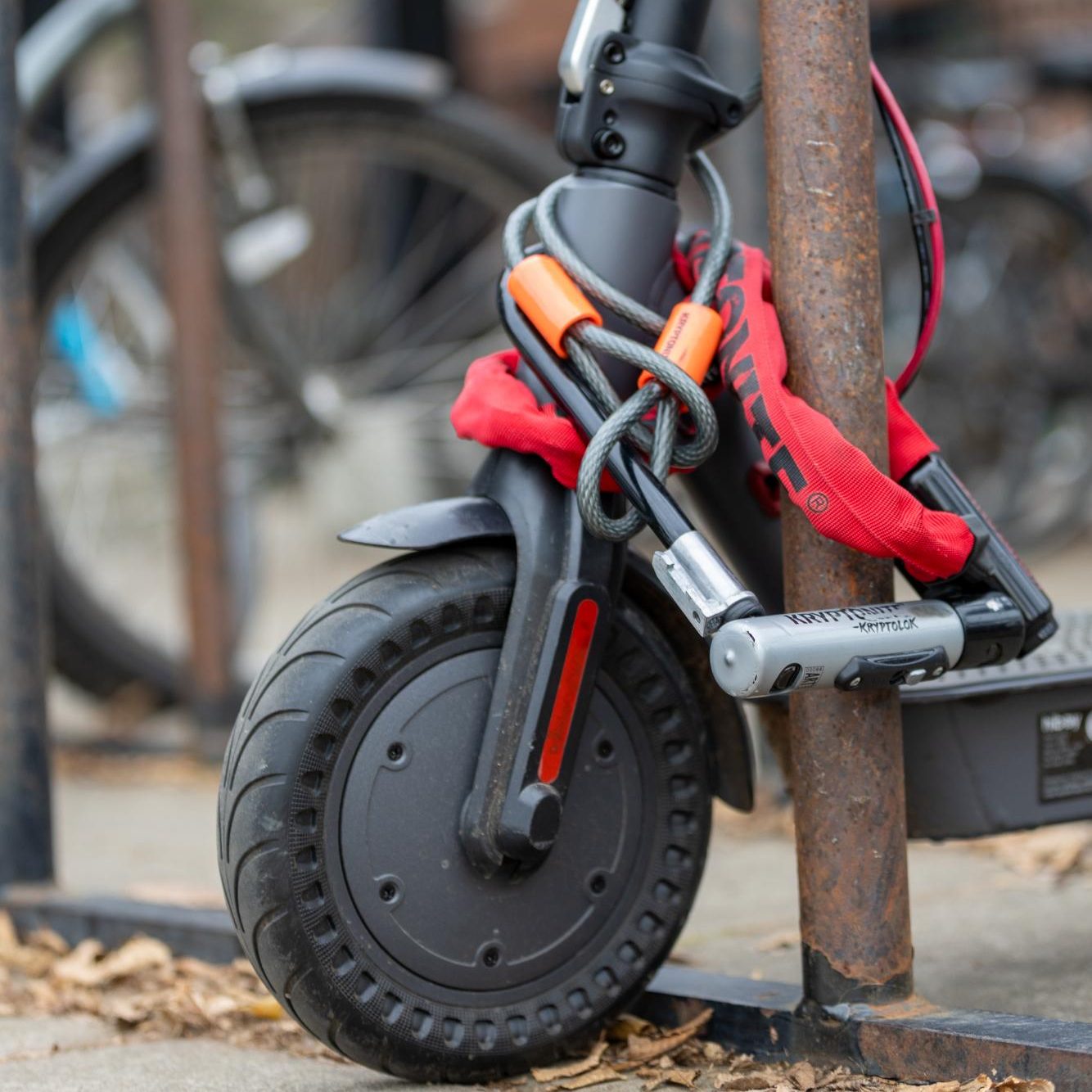Electric scooter thefts occurring across multiple terms have been affecting campus, but the Department of Public Safety at Oregon State University has already made a number of recoveries this term.
According to OSU Department of Public Safety Lt. Jim Yon, Public Safety relies on timely reporting to track down thefts and victims having the information to prove their ownership of stolen scooters, such as brand names and serial numbers. Public Safety also maintains a list of these stolen items for officers and dispatch.
“We really try to stay current on this list because we talk about what thefts we take between patrol teams so we are all looking out for them,” Yon said. “If we get a lead, we follow up as quickly as possible hoping to have a positive end and get the bike (or) scooter returned.”
According to Yon, the immediate consequence for a perpetrator is arrest. Stealing a scooter above $1,000 is a class C felony, while anything between $100 to under $1,000 is a class A misdemeanor, with penalties including jail or prison time.
“Jail or prison time has a lot of factors that go into it. On a property crime, you need many prior convictions to receive prison time,” Yon said. “You generally will have slightly longer probation times with a felony.”
These thefts are fairly consistent throughout the terms, with a temporary increase at the beginning of the winter and spring terms, around when students leave their bikes and scooters behind while they go home, according to Yon.
While scooters are being stolen on campus, in Corvallis 12 electric scooters have been taken from burglaries, the insides of vehicles and general outside locations during this year, according to Corvallis Police Department Lt. Benjamin Harvey.
“I would not consider this number to be statistically relevant to demonstrate a ‘crime trend,’” Harvey said. “I do believe increases in electric scooter theft are attributed to their popularity and availability considering they have become more affordable and reliable.“
According to Jeff Hallman, owner of Corvallis Electric Bicycles, the difficulty of stealing a scooter depends on how it is locked. Cables are easy to cut, but U-locks, which need to be used through the frame of the scooter for the most security, can be harder to use, and some scooters don’t have unique serial numbers.
“Most of them look similar and would be hard to recognize unless it was customized,” Hallman said. “Being cheaper than e-bikes, we think most owners won’t bother to file a police report since it’s a low-cost item. Insurance is super expensive and not worth the cost to insure a low-priced scooter.”
While Corvallis Electric Bicycles has stopped selling e-scooters, Hallman still reports seeing more electric scooters around Corvallis, attributing their popularity to their ease of storage and affordability.
“Scooters make a lot of sense for getting around Corvallis; it’s mostly flat here and would likely only take you 20 minutes to go a few miles,” Hallman said. “We love seeing more people riding micro-mobility devices like scooters (as it means) less cars on the road.”
Hallman advises bringing the scooter inside, whether it is a business or a class, for the “ultimate scooter security,” and keeping them within eyesight for the latter. According to Hallman, bluetooth trackers such as Apple Airtags or Tiles can notify when a bike or scooter is moved.
“We’re not sure of policies around storing scooters inside at OSU or various department complexes, but we think it’s better to ask for forgiveness than ask for permission when bike (or) scooter theft is big here in Corvallis,” Hallman said.


















































































![Newspaper clipping from February 25, 1970 in the Daily Barometer showing an article written by Bob Allen, past Barometer Editor. This article was written to spotlight both the student body’s lack of participation with student government at the time in conjunction with their class representatives response. [It’s important to note ASOSU was not structured identically to today’s standards, likely having a president on behalf of each class work together as one entity as opposed to one president representing all classes.]](https://dailybaro.orangemedianetwork.com/wp-content/uploads/2025/03/Screenshot-2025-03-12-1.00.42-PM-e1741811160853.png)

























